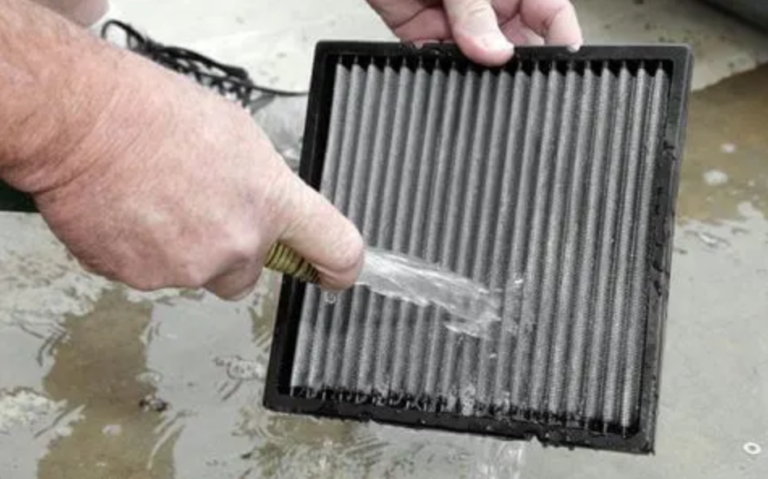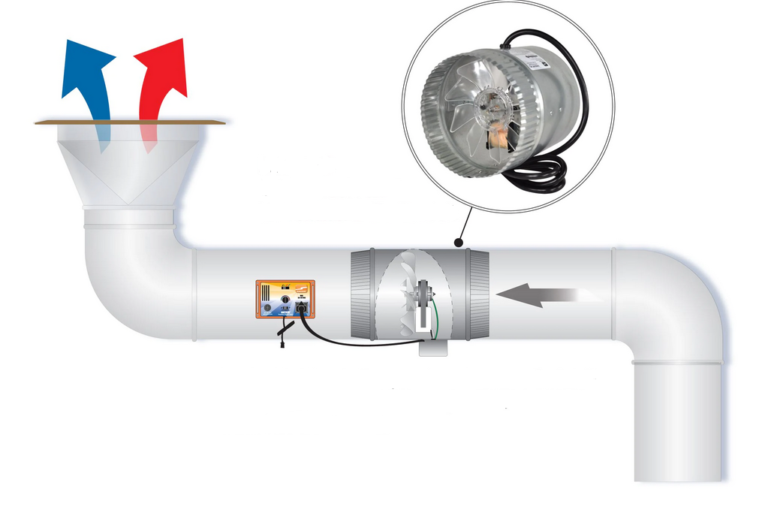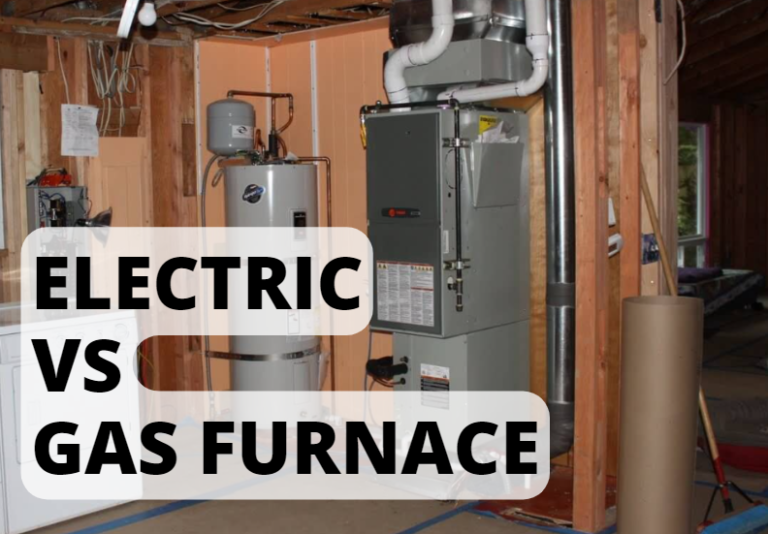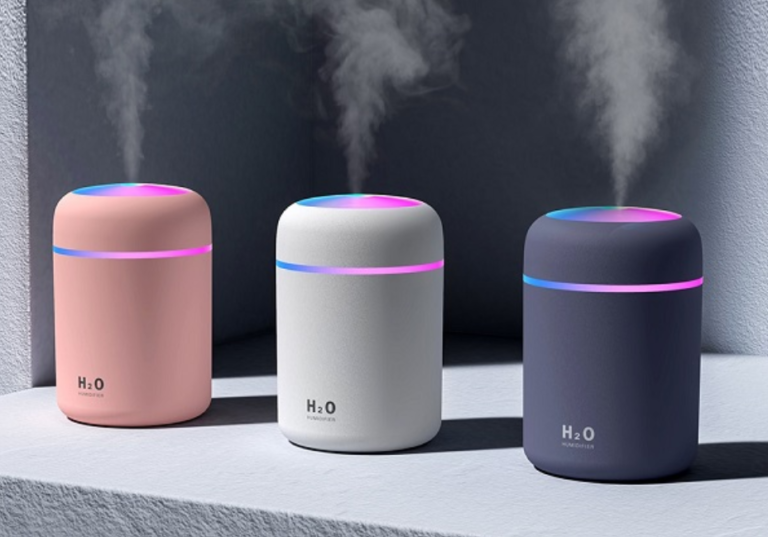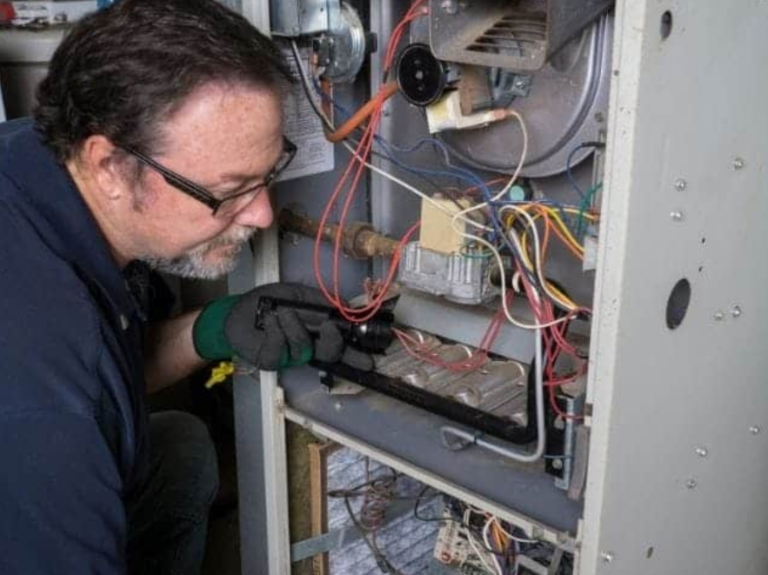Why is my AC leaking water: 15 reasons (air handler water leak)
If you have ever wondered why your air conditioner is leaking water, you are not alone. Many people have this same problem, and it can be quite frustrating. There are a few different reasons why your air conditioner may be leaking water and we will go over those reasons below.
Why is my air conditioner leaking water (air handler water leak):
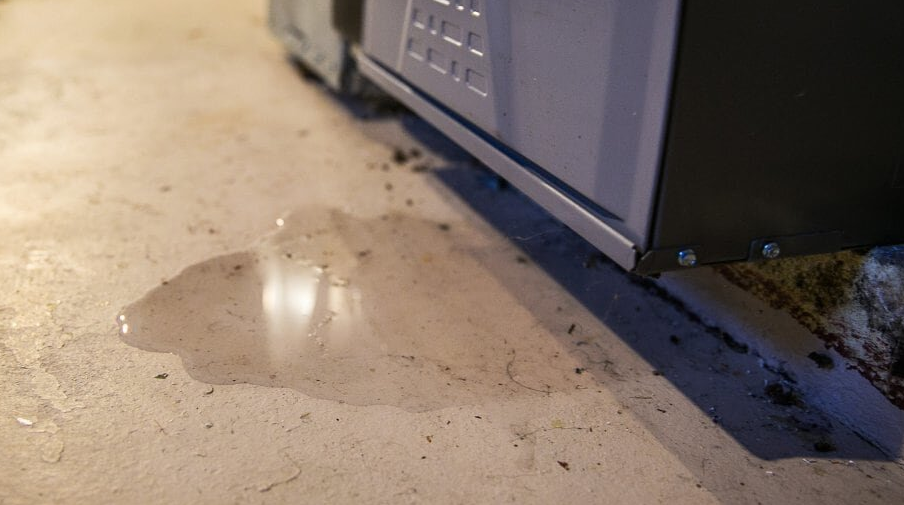
1. Dirty or clogged air filter
One of the most common reasons for an AC to leak water is a dirty or clogged air filter. When the air filter is full of dirt and dust, it can restrict airflow and cause the AC to freeze up.
The ice can then melt and drip water onto the floor. To prevent this from happening, be sure to regularly clean or replace your air filter.
2. Frozen evaporator coil
If you have ever found a pool of water around your air conditioner, it is most likely due to a frozen evaporator coil. The evaporator coil is the part of your AC unit that actually cools the air inside your home. It is filled with a refrigerant that turns from a gas to a liquid as it absorbs heat from your indoor air. As the refrigerant in the coil absorbs heat, it begins to turn back into a gas. This process is called “evaporation” and it is how your air conditioner cools your home.
The evaporator coil is located inside the air handler, which is the large box-like unit that contains all the working parts of your AC system. The air handler is usually located in the attic or basement, and the evaporator coil is located inside it.
The evaporator coil contains a very small amount of water, which helps to keep the coils from freezing. However, if the temperature outside gets too cold, this water can freeze and cause the coils to ice over. When this happens, your AC unit will no longer be able to absorb heat from your indoor air, and it will stop cooling your home.
If you think your evaporator coils may be frozen, there are a few things you can do to thaw them out:
- First, turn off your AC unit and fan. Then, locate the evaporator coils and use a hair dryer to thaw them out. Be sure not to use too much heat, as this can damage the coils. Once they are thawed out, turn on your AC unit and fan to help dry out any remaining moisture.
- If you cannot find the evaporator coils or if they are not easily accessible, you can also try turning up the thermostat to its highest setting for a few hours. This will create a warm environment inside your home, which will help thaw out the coils. Just be sure to monitor the temperature closely so that your home doesn’t get too warm.
Once the coils are thawed out, you should have your AC unit serviced by a professional. This will help ensure that there is no lasting damage to your unit and that it is running properly.
3. Evaporator Coil Is Grubby or Broken
If the evaporator coil is dirty or broken, that water can start to leak out instead of dripping into the pan. A dirty coil can be caused by a build-up of dust and debris, which can happen over time as the coil does its job. A broken coil, on the other hand, is usually the result of a manufacturing defect or physical damage.
If you suspect that your evaporator coil is to blame for your AC’s water leak, the first thing you should do is check the condition of the coil itself. If it’s covered in dust or debris, you can try cleaning it off with a brush or vacuum attachment. If that doesn’t work, or if the coil is visibly damaged, you’ll need to replace it.
Replacing an evaporator coil is a fairly straightforward process, but it’s best to leave it to a professional AC technician. They’ll be able to properly diagnose the problem and ensure that the new coil is properly installed.
4. Clogged condensate drain line
The condensate drain line is responsible for carrying away any water that condenses on your air conditioner’s evaporator coils. If the drain line becomes clogged or blocked, water can back up and start to leak out of your air conditioner.
There are a few things that can cause your condensate drain line to become blocked or clogged.
One of the most common causes is simply dirt and debris build-up. Over time, dirt and debris can start to accumulate in the drain line, eventually causing it to become blocked.
Another common cause of condensate drain line problems is algae growth. Algae can start to grow in the moist environment of the condensate drain line, and as it grows, it can block the line.
You can clean out your condensate drain line yourself using a wet/dry vacuum or a plunger. Just be sure to turn off your air conditioner before you do anything. If you’re not comfortable doing this yourself, you can always call a professional to help you out.
5. Broken or damaged condensate drain line
In most cases, you can simply replace the damaged section of the line. However, if the damage is severe, you may need to replace the entire condensate drain line.
If you’re not sure how to fix a leaking condensate drain line, we recommend calling a professional HVAC technician. They will be able to quickly diagnose the problem and make the necessary repairs.
6. Disconnected drain line
If the drain line becomes disconnected, the water will have nowhere to go and will start to leak out of your AC unit.
There are a few reasons why the drain line might become disconnected. One possibility is that the line was not installed correctly in the first place. Another possibility is that something has come loose and caused the line to disconnect. Whatever the reason, it is important to get the problem fixed as soon as possible, or you could end up with serious water damage.
There are a few things you can do to try to fix the problem yourself. First, check to see if the drain line is still connected at the point where it enters your AC unit. If it is not, you may be able to simply reconnect it. If the line is broken or damaged, you will need to replace it.
7. Leaking refrigerant
If your AC is leaking water, it could be because of a refrigerant leak. When the coolant in your air conditioner leaks, it can cause the unit to work harder to cool your home, which can lead to more water being produced and leaked. If you think you have a refrigerant leak, it’s important to have it fixed as soon as possible by a qualified technician. Otherwise, you could end up damaging your AC unit beyond repair.
Refrigerant is what helps your AC unit cool your home by circulating the air inside. So, when there’s a leak, it can cause your AC unit to work less efficiently and use more energy. In some cases, it can even cause your AC unit to freeze up and stop working altogether.
There are a few things that can cause your AC unit to develop a refrigerant leak. One is simply age – over time, seals and gaskets can degrade and allow refrigerant to escape. Another possibility is that your AC unit was not properly installed and/or sealed when it was first put in.
If you think you might have a refrigerant leak, the first thing you should do is check the pressure in your AC unit. If it’s low, that’s an indication that there could be a leak. You’ll also want to look for any signs of moisture or water around your AC unit – this could be an indication of a refrigerant leak as well.
If you suspect you have a refrigerant leak, it’s important to have it fixed as soon as possible by a qualified technician. Refrigerant leaks can cause serious damage to your AC unit if they’re not fixed, so don’t delay in getting it checked out.
8. Low Refrigerant Level
When the refrigerant level is low, the compressor can’t circulate the refrigerant properly and it leaks out. This causes the evaporator coils to ice up and the unit to stop working properly.
There are a few things that can cause low refrigerant levels:
- A leak in the evaporator coils
- A leak in the condenser coils
- A leak in the compressor
- A problem with the refrigerant line
9. Damaged Drip Pan
If your AC is leaking water, it could be because of a damaged drip pan. The drip pan is responsible for collecting and draining water from the air conditioner, so if it’s damaged, it can cause water to leak out.
There are a few things that can cause a drip pan to become damaged, such as corrosion, rust, or a crack. If you think that your drip pan may be damaged, it’s important to have it checked out by a professional to see if it needs to be replaced.
10. Faulty Condensate Pump
The condensate pump is responsible for pumping water from the air handler to the outside of your home. If the pump isn’t working properly, water will build up in the air handler and eventually start leaking out.
There are a few things that can cause a condensate pump to fail. The most common problem is a clogged filter. The filter prevents dirt and debris from getting into the pump, but over time it can get clogged with gunk. This can cause the pump to overheat and eventually fail.
Another possibility is that the float switch is stuck in the “on” position. The float switch turns the pump on when water levels get too high, but if it’s stuck, the pump will run continuously and eventually burn out.
If your condensate pump has failed, you’ll need to replace it. This is a relatively easy job that most homeowners can do themselves. Just be sure to follow the manufacturer’s instructions carefully.
11. Extreme weather conditions
When the temperature outside rises, the unit has to work harder to maintain a comfortable indoor temperature.
This can cause condensation to form on the coils, which drip down and collect in the pan below. In very humid conditions, this process can happen more quickly and result in a larger puddle of water.
12. Improperly sized AC unit
An AC unit that is too small for the space it is cooling will have to work harder to cool the air, which can cause it to leak water. An AC unit that is too large for the space will not have to work as hard, but will still use more energy than necessary and can also cause water leaks.
The best way to avoid problems with an improperly sized AC unit is to have a professional help you select the right unit for your home. They will take into account the size of your home, the number of windows, the insulation, and other factors to determine the best size for your needs.
13. Old or outdated AC unit
If you’ve noticed water leaks around your AC unit, it’s likely that the unit is old or outdated. While a new AC unit may be more expensive upfront, it will save you money in the long run by being more energy efficient and requiring less repairs. An old AC unit is more likely to break down and need expensive repairs, so it’s worth considering replacing it if you’re experiencing water leaks.
14. Poorly maintained AC unit
A well-maintained AC unit should have its coils cleaned regularly and its filters replaced frequently. If your AC unit isn’t being properly maintained, the coils can become clogged with dirt and dust, which can cause them to leak water.
Additionally, if your AC unit’s filters are dirty, they can also cause the unit to leak water. To avoid these issues, be sure to have your AC unit serviced by a qualified technician regularly.
15. Incorrectly installed AC unit
If your AC unit is leaking water, it could be because it wasn’t installed correctly. Many AC units are installed by untrained professionals, and this can lead to a number of problems, including water leaks. If your AC unit was installed by an untrained professional, it’s important to have it checked by a trained technician.
One of the most common cause of water leaks is when the unit is not level. If the unit is not level, the condensate drain pan will not be able to drain properly, and water will build up in the pan and eventually leak out.
Another common cause of water leaks is when the AC unit is not properly sealed. If the unit is not properly sealed, air will leak out and moisture will get in, which can cause the unit to rust and eventually leak water.

